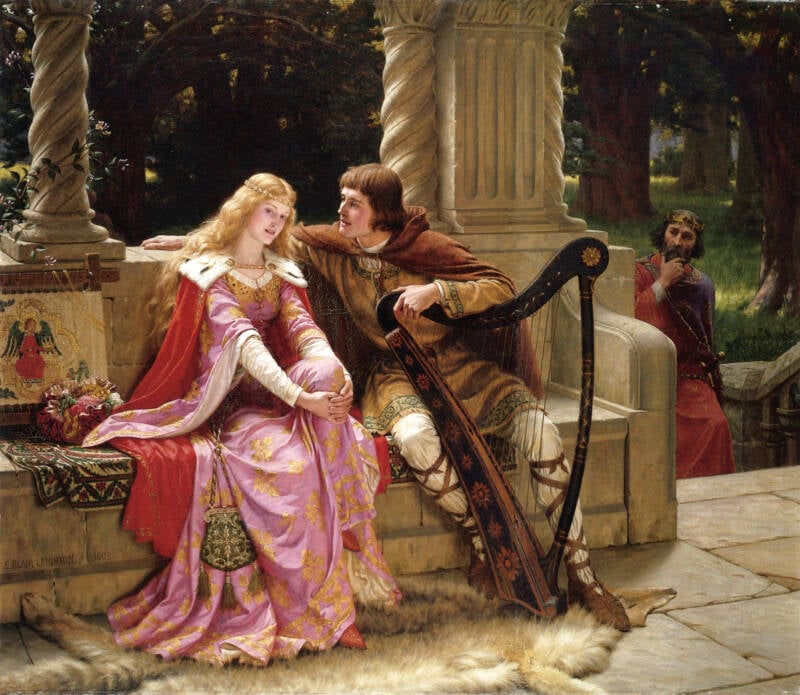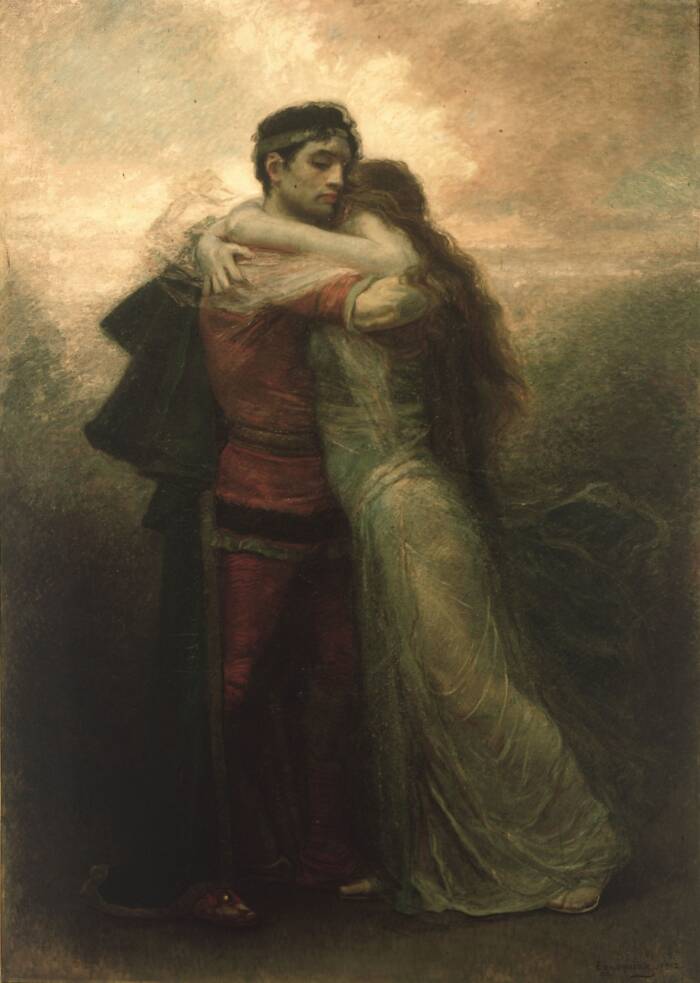Sir Tristan, The Lover Of Isolde

Public DomainSir Tristan was skilled in music, poetry, and courtly arts in addition to warfare.
The legend of Sir Tristan originated independently before it was incorporated into the tales of the Knights of the Round Table. The earliest stories involving him date back to around the 12th century in France and Britain, with his role in Arthurian legend being solidified in Le Morte d’Arthur.
Born as Tristan of Lyonesse, his story began on a sorrowful note, represented by his very name — the French word triste means “sad.” His mother died giving birth to him, after which he was orphaned and placed in the care of his uncle, King Mark of Cornwall. Under his uncle’s tutelage, Tristan grew into a knight of extraordinary talent.
He was not only a formidable warrior, but also a gifted musician, poet, and healer — a Renaissance man centuries before its time.
When the Irish champion Morholt arrived in Cornwall and demanded tribute, Tristan volunteered himself for battle. Though victorious, Tristan was wounded by Morholt’s poisoned sword and could only be healed in Ireland, the land of his enemy. There, he was cured by Morholt’s niece, the princess Isolde.

Public DomainTristan and Isolde’s romance was one of the greatest love stories of medieval Europe.
When Tristan was later sent to Ireland to escort Isolde to Cornwall for her arranged marriage to King Mark, he and Isolde accidentally consumed a love potion intended for the wedding night. This magical draught bound them in an irresistible, eternal love, and the resulting affair echoed the complex relationship faced by Lancelot and Guinevere. Tristan owed allegiance to Mark, but he could not resist his love for Isolde.
The lovers met secretly at times while enforcing periods of separation at others. Unlike Lancelot’s guilt over his affair with Guinevere, however, Tristan’s love was often portrayed as beyond moral judgment and inspired countless poems, songs, and artistic works throughout medieval Europe.
Tristan’s death varied from telling to telling, but most versions concluded with a tragic separation from Isolde and a final reunion only in the afterlife.





